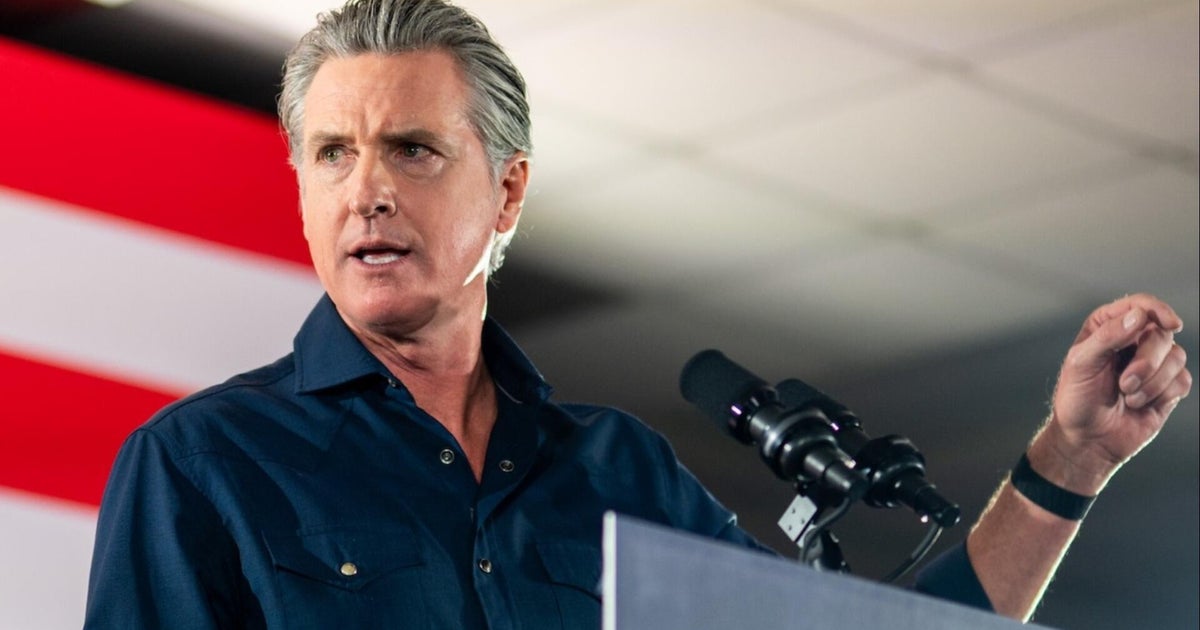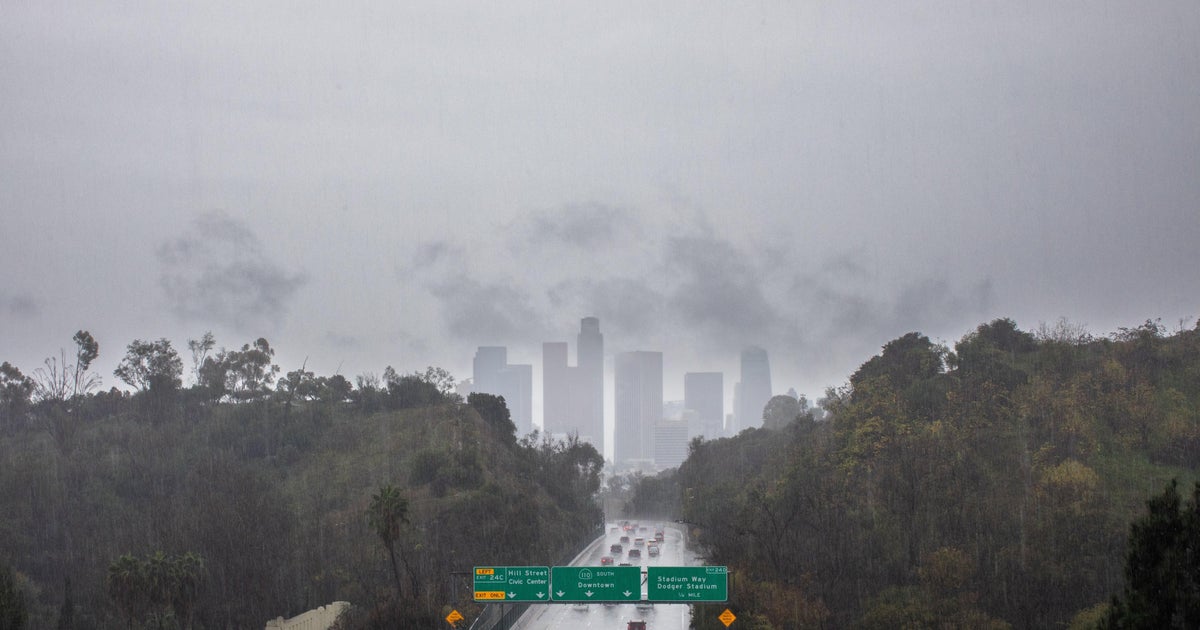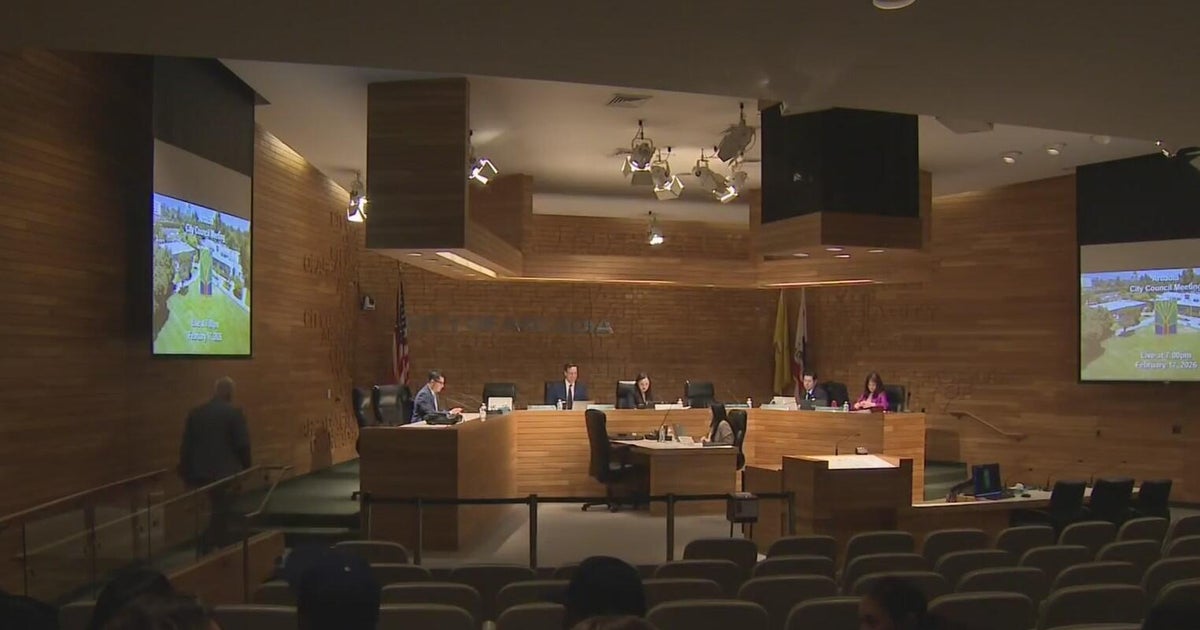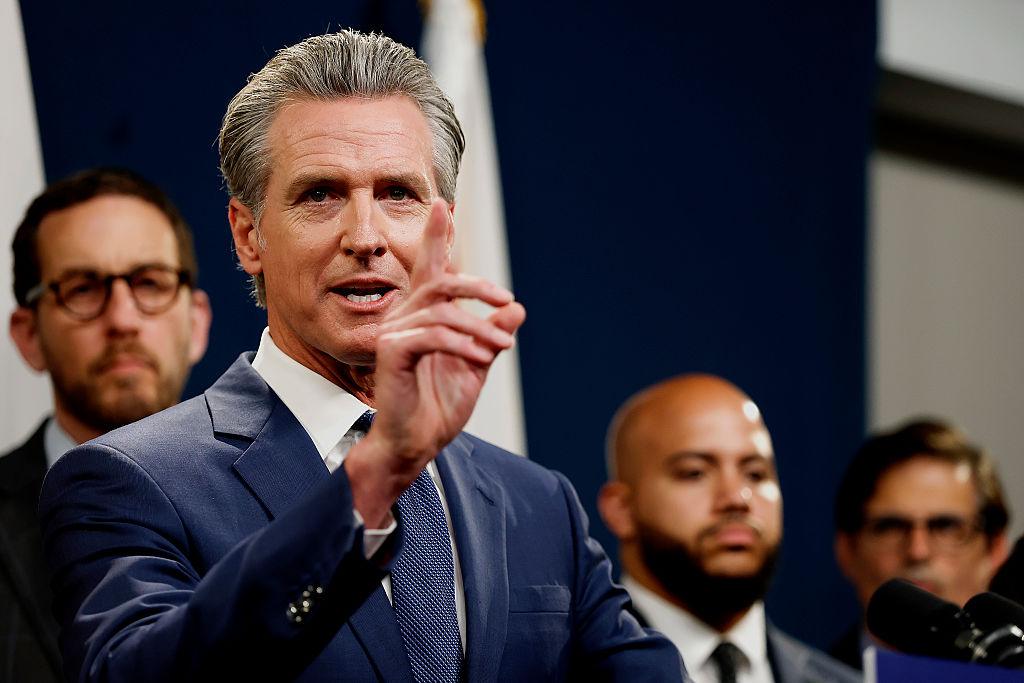California governor issues curfew as coronavirus cases rise
California Governor Gavin Newsom on Thursday issued a temporary curfew throughout most of the state in an effort to slow the spread of coronavirus. The order, which goes into effect Saturday, stops gatherings and non-essential work between 10 p.m. and 5 a.m. in areas under the state's purple tier label, where virus transmission is considered widespread.
"The virus is spreading at a pace we haven't seen since the start of this pandemic and the next several days and weeks will be critical to stop the surge. We are sounding the alarm," Newsom said in a press release. "It is crucial that we act to decrease transmission and slow hospitalizations before the death count surges. We've done it before and we must do it again."
The stay-at-home order affects 41 out of California's 58 counties, which makes up over 94% of the state's population, according to state data.
"We are asking Californians to change their personal behaviors to stop the surge. We must be strong together and make tough decisions to stay socially connected but physically distanced during this critical time. Letting our guard down could put thousands of lives in danger and cripple our health care system," said Dr. Erica Pan, California's acting public health officer.
The state's COVID-19 case rate has increased by 50% during the first week of November, said the state's Department of Public Health. More than 1 million people have contracted the virus in the state, and over 18,400 have died, according to Johns Hopkins University.
"It is especially important that we band together to protect those most vulnerable around us as well as essential workers who are continuing their critical work amidst this next wave of widespread community transmission across the state," she added. "Together we prevented a public health crisis in the spring and together we can do it again."
Last week, California issued a travel advisory requiring those entering the state to quarantine for 14 days. Residents are encouraged to cancel all non-essential travel, especially as the holiday season approaches.
Across the country, 187,000 new coronavirus cases were reported on Thursday, with over 2,000 deaths - both are record-highs, according to Johns Hopkins University. More than 250,000 Americans have died from the virus.



